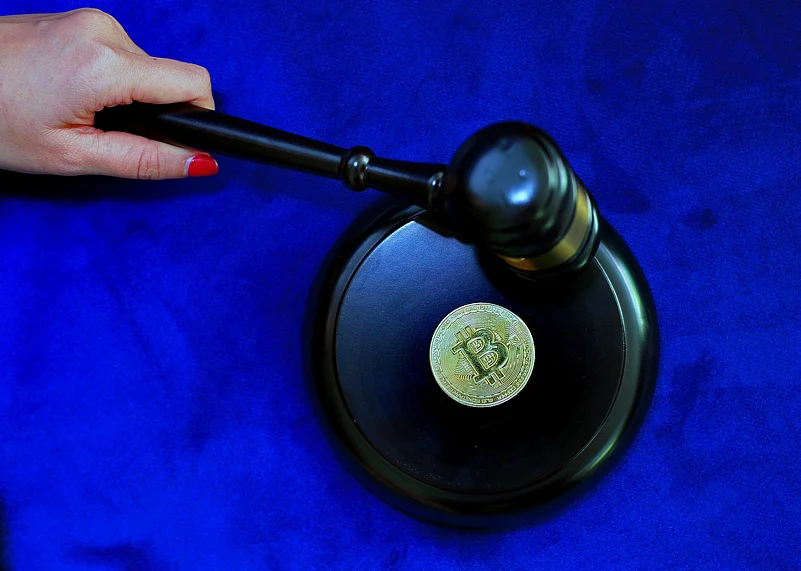Bank of England's Governor Andrew Bailey has warned banks against creating their own stablecoins. In a news report by Cointelegraph, Bailey said that private stablecoins could cause problems for the financial system. He believes they might take money away from regular banks, reduce lending, and make it harder for the government to manage the economy.
Instead of making new digital coins, Bailey suggested that banks should focus on turning existing bank money into digital form, a process called tokenisation. As Cointelegraph reported, Bailey said this would be a safer and more reliable way to improve digital payments.
Bailey also said he is not fully in favour of the Bank of England launching its own digital currency, known as a central bank digital currency or CBDC. According to Cointelegraph, he thinks such a move could bring new risks and make the financial system more complicated.
Cointelegraph pointed out that Bailey's views are different from those in other countries. In the United States, for example, there is growing support for stablecoins that are backed by cash or government bonds. These are seen as a way to strengthen the dollar's role in the global economy. European officials have also warned that stablecoins could weaken the euro if not controlled.
As the new head of the Financial Stability Board, Bailey told Cointelegraph he plans to keep a close watch on the rise of stablecoins. He believes that if they are not properly regulated, they could damage trust in banks and create financial risks during tough times.
Satoshi Nakamoto Ranks 11th Richest After Bitcoin Rally
Satoshi Nakamoto, the mysterious creator of Bitcoin, is now estimated to be the world's 11th richest person. After Bitcoin reached $120,000 per coin recently, Nakamoto's holdings, believed to total 1.096 million BTC, are worth approximately $131 billion. This value surpasses that of Dell Technologies' founder Michael Dell, whose net worth is estimated at around $125 billion, currently listed as the 11th richest in the Forbes list.
As reported by Cointelegraph, the widely followed Forbes Billionaire list do not include anonymous crypto holdings and focuses only on public assets such as stocks and real estate. If they did, Nakamoto would currently be placed much higher on that list.
To become the richest person in the world, a position currently held by Elon Musk with over $400 billion, Bitcoin's price would need to rise by about 208 per cent to around $370,000 per coin, assuming other billionaires net worths remain unchanged. Some analysts quoted by Cointelegraph estimate a 60 per cent chance that Bitcoin could reach $133,000 by September, while others suggest it could touch between $200,000 and $250,000 by early 2026.
Cointelegraph also notes that Nakamoto could rise to the top two richest individuals globally if Bitcoin maintains its historical growth rate of around 50 per cent annually, possibly by 2026. What stands out is that Nakamoto has never sold any of the Bitcoin, all of which was mined in the early days of the network and has remained untouched since around 2010.
With roughly 5 per cent of all Bitcoin under Nakamoto's control, the dormant fortune remains a significant and unpredictable force in the crypto market.
Dolce & Gabbana's US Arm Cleared in NFT Lawsuit Over Delivery Delays
Dolce & Gabbana's US division and the digital fashion platform UNXD have been cleared of legal wrongdoing in a class-action lawsuit involving a delayed NFT project. According to a report by Cointelegraph, a customer who purchased a DGFamily NFT for $6,000 claimed that delivery delays led to a significant drop in its value, nearly 97 per cent, or around $5,800.
The lawsuit was filed in a New York court and alleged that the digital assets, which included exclusive virtual outfits for use in the metaverse, were not delivered on time. The buyer also said that even after the NFTs were issued, the virtual items were not immediately usable, with an additional delay of 11 days before activation. He argued that the late delivery reduced both the usefulness and value of the NFT, which had been marketed as offering a blend of digital and physical perks, access to private events, and other brand-related experiences.
As reported by Cointelegraph, the court dismissed the case, ruling that there was not enough evidence to prove the companies had broken any laws. The judgment reflects how legal cases involving NFTs are still complex, especially when it comes to understanding value loss, delivery timelines, and buyer expectations.
Cointelegraph noted that the ruling highlights the need for transparency and clear terms in NFT-related sales. For both brands and buyers entering the web3 space, the outcome serves as a reminder that legal protection in the digital asset world is still developing.










